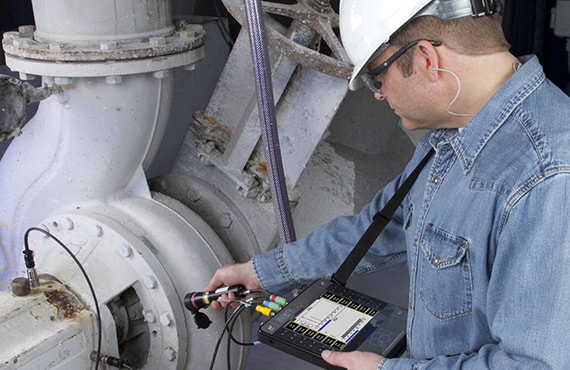UL 1703 – Photovoltaic Module Mechanical Load Test
The UL 1703 mechanical load test is a critical procedure in the quality assurance process for photovoltaic (PV) modules. This test evaluates how well PV modules can withstand external mechanical loads, such as snow accumulation or wind-induced pressure, without compromising their structural integrity and performance.
During this test, PV modules are subjected to prescribed static load forces that simulate real-world conditions. The purpose is to ensure the durability of the module under various environmental stresses, thereby enhancing its reliability in harsh operating environments. This test is essential for manufacturers to comply with safety standards and ensure product quality.
The mechanical load testing process involves several key steps:
- Specimen Preparation: PV modules are selected based on their design specifications and expected environmental exposure.
- Loading Application: The module is placed in a test fixture where it is subjected to the specified static loads. These loads can range from 100 pounds per square foot (psf) for residential applications up to 85 psf for commercial installations.
- Observation and Measurement: During and after loading, detailed observations are made regarding any deformation or failure of the module structure. Data is collected on how the load affects the overall performance of the module.
The UL 1703 standard specifies that photovoltaic modules must be able to withstand a minimum static pressure of 25 pounds per square foot (psf) for residential applications and up to 85 psf for commercial and industrial installations. The test is designed to simulate the worst-case scenario, ensuring that PV modules can perform reliably under extreme conditions.
The results of this test are crucial for compliance with UL standards and other relevant regulations. By passing this test, manufacturers can ensure their products meet stringent safety requirements, thereby protecting end-users from potential hazards associated with structural failures in solar installations.
For quality managers and R&D engineers, understanding the nuances of this testing is vital. It helps them to anticipate challenges during manufacturing and design stages, ensuring that PV modules are not only efficient but also safe for use in various environments.
Eurolab Advantages
Eurolab offers a comprehensive range of services tailored to the oil & gas sector and beyond. Our expertise in photovoltaic module testing ensures that we can provide clients with accurate, reliable test results that are essential for compliance with UL 1703 standards.
We have state-of-the-art facilities equipped with advanced instrumentation capable of simulating real-world loading conditions accurately. This allows us to conduct tests that closely mimic the stresses PV modules will encounter in actual use.
Our team comprises highly skilled engineers and technicians who are well-versed in the latest testing techniques and standards. They provide expert guidance throughout the testing process, ensuring that all aspects of the test are conducted meticulously and according to best practices.
In addition to our technical capabilities, Eurolab offers fast turnaround times for test results, enabling clients to receive timely feedback on their products' performance. This is particularly valuable for quality managers and R&D engineers who need rapid insights into potential design improvements or compliance issues.
We also offer additional support services such as consultation on best practices for PV module design and installation, helping our clients stay ahead of industry trends and regulatory changes.
Quality and Reliability Assurance
The UL 1703 mechanical load test is a cornerstone of quality assurance in the photovoltaic module industry. By ensuring that modules can withstand significant external pressures, this test enhances the overall reliability and safety of solar installations.
Passing this test demonstrates that a PV module has been rigorously evaluated to meet strict performance criteria set forth by UL standards. This is particularly important for manufacturers who aim to build trust with their customers and ensure long-term product satisfaction.
The mechanical load test also plays a crucial role in compliance with international regulations, such as those outlined in ISO 9806:2013 and IEC 61730-1. These standards provide guidelines for the design, manufacture, testing, and installation of PV modules, ensuring that they meet global safety and performance requirements.
For procurement departments, compliance with UL 1703 is essential when selecting suppliers for photovoltaic components. Ensuring that only high-quality products are used in projects helps to minimize risks associated with substandard materials or construction practices.
In summary, the UL 1703 mechanical load test is an indispensable tool for maintaining quality and reliability in the PV industry. Its importance cannot be overstated, as it directly impacts both product performance and end-user safety.
International Acceptance and Recognition
The UL 1703 mechanical load test is widely recognized and accepted across the global photovoltaic industry. This standard ensures that PV modules meet stringent quality requirements, thereby enhancing their performance and safety in various applications.
Many countries have adopted or referenced UL standards into national codes, further emphasizing the importance of this testing procedure. For example, the United States, Canada, and several European Union member states have incorporated UL 1703 into their regulatory frameworks, ensuring that PV modules comply with local safety and performance criteria.
The acceptance of this test extends beyond just North America and Europe; it is also recognized in Asia-Pacific regions like China, Japan, and India. This widespread recognition underscores the universal nature of the challenges faced by photovoltaic manufacturers worldwide, making UL 1703 a standard practice globally.
By adhering to this test procedure, PV module producers not only meet international standards but also demonstrate their commitment to delivering safe and reliable products. This is particularly important in regions where extreme weather conditions can significantly affect the longevity of solar installations.





